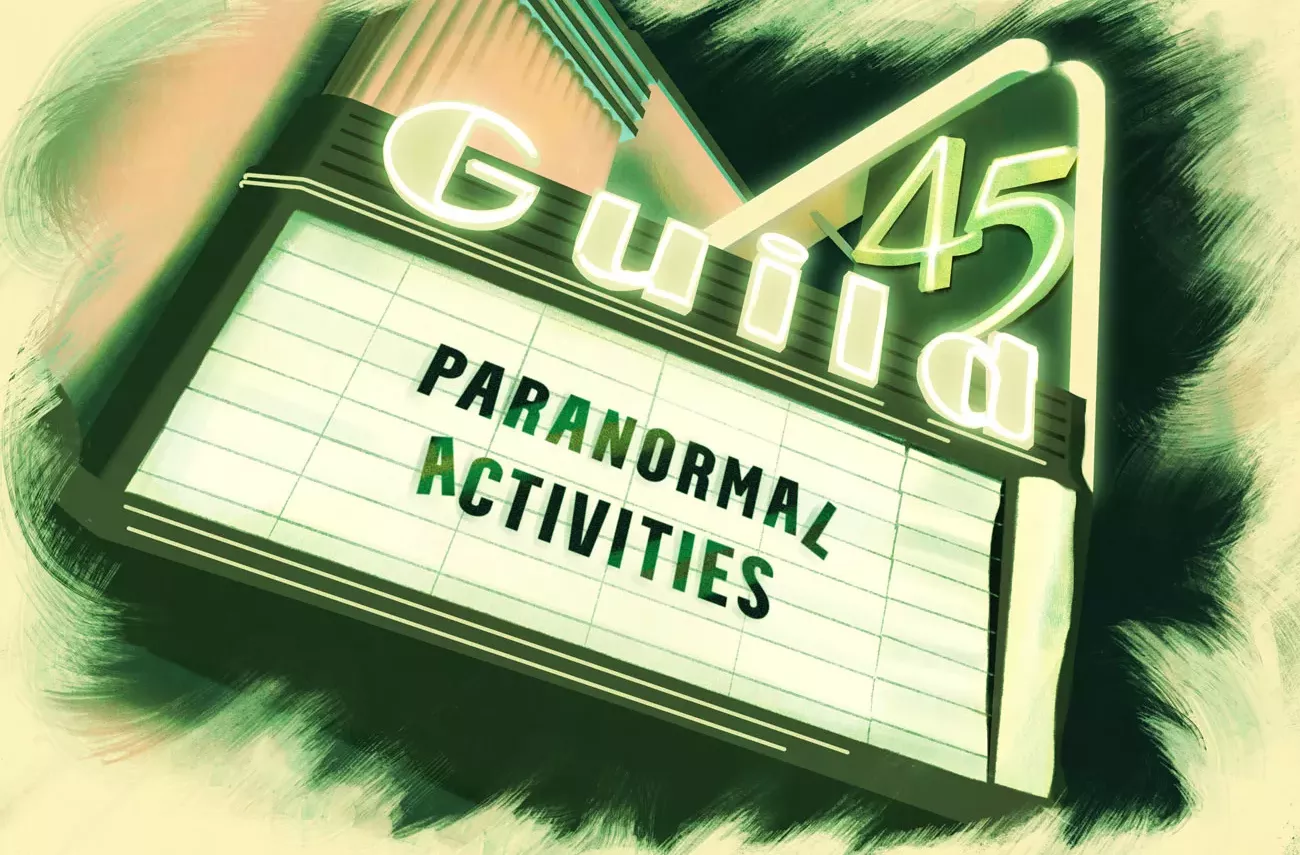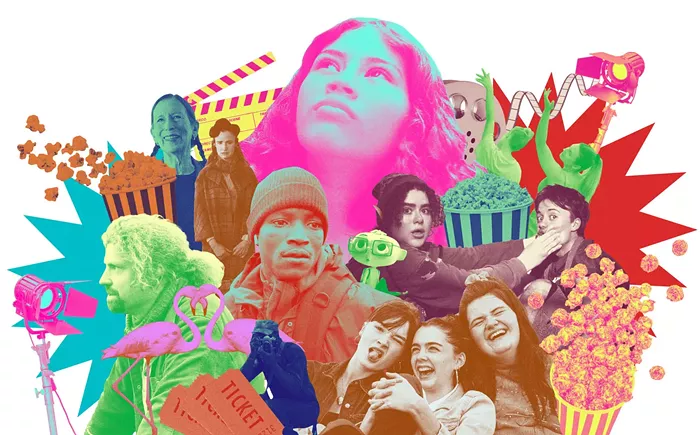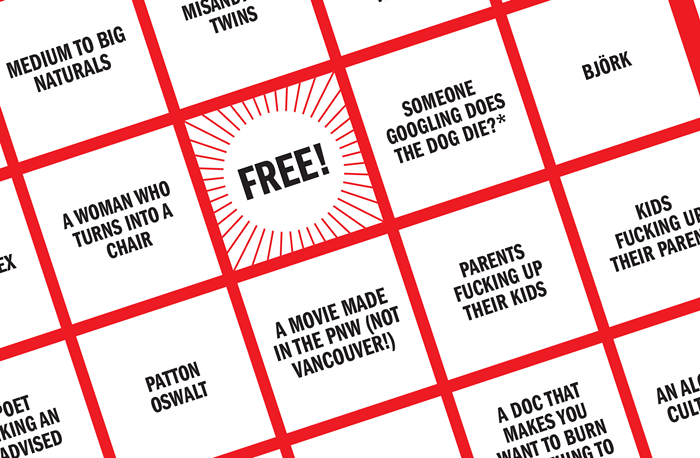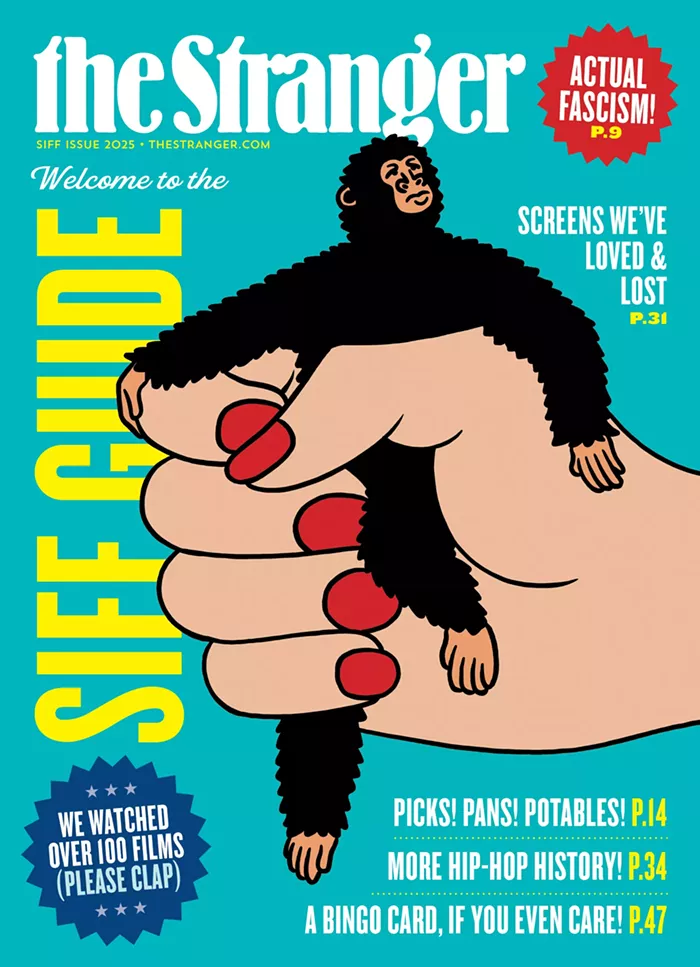While we were putting together this issue of The Stranger, and contemplating all the ways in which we could cover the upcoming Seattle International Film Festival now that we’re back in print, we started to think back to the old days, when The Stranger would pilfer the SIFF offices for weeks on end, grabbing all the VHS tapes and DVDs we could get our greedy hands on.
I worked at The Stranger through many a SIFF season (my first stint at the paper was between 2000–2013) and I loved SIFF season. I loved how jumping from one SIFF show to the next was an annual springtime tradition. I loved taking a chance on a movie I knew nothing about, save for the 100 or so works in a snarky alt-weekly. I loved getting to eat popcorn every day for two weeks.
While SIFF has continued going strong—51 years running!—it’s undeniable that things have changed. COVID-19, of course, had a profound impact on cinema. In 2023, the National Cinema Foundation reported that more than 2,000 movie theaters closed across the US during the pandemic. But even before that, Seattle was losing its treasures. Harvard Exit closed in 2015, the Seven Gables Theatre and Guild 45th closed in 2017, and more recently, we’ve lost AMC 10 (formerly the Metro). While both the Grand Illusion and the Egyptian haven’t closed, neither org is operating full-time—Grand Illusion was forced to relocate in February and the Egyptian is still under construction following last year’s busted pipe and flooding.
So many movies, so many memories… Fin.
So we started asking around. Who else was wistfully recalling the days when there was an indie movie house on every block in the U-District, the Guild 45th brightened up commutes with their punny marquee, and the back pages of The Stranger were full of printed weekly showtimes (received via fax!)?
It turns out, so many of you did. Local artists, musicians, and Stranger writers old and new did stints at theaters across town in the ’90s and 2000s, and they all and had funny, weird, heartwarming, and even scary stories to share about ghosts, local celebrities, attendees fucking in the cry rooms (for those who don’t know, we’ll explain what a cry room is in a second), and employees finding the weirdest shit on theater floors.
Brandy Rettig, who worked at the Metro in the mid ’90s, says, “I found wads of cash, orthodontic devices including dentures and retainers, jewelry, beepers, and various illegal substances from joints to pills to unknown powders. The worst was bodily fluids—vomit was more common than you might think. One time a woman dropped her drawers and peed in the aisle—it was pre-cell phone, so there was no RunPee app, I guess.” [Editor’s note: the RunPee app tells you the best times to run and pee during a movie; isn’t technology incredible?]
This month, as you (hopefully) file into a local movie theater—whether you’re seeing Sinners for the fifth time or going in blind to a collection of SIFF shorts—take a moment to appreciate that the theaters we have now exist at all. Thank the folks working there, for giving us all a dark and butter-scented space to escape to, even if it is for just a couple of hours. And please, silence your cell phones… and don’t piss on the floor.
* * *
Brandy Rettig, the Metro, 1994–1997
Do you remember the “cry room” at the Metro? Only one theater had it, and it was intended for parents with babies. People used to sneak in there and do all kinds of stuff, from smoking pot to probably conceiving new babies. I was never one to wanna interrupt another’s good time, but there were others on staff who lived to bust in on that.
What I remember most was the staff camaraderie. We were all mostly broke, punk-rock college kids in perpetually butter-stained uniforms, surviving on leftover popcorn, the occasional few dollar bills we’d find on the floor between showings, and the knowledge that we’d never have to pay for a movie again so long as we showed up and did the absolute minimum.
To this day, the theater tagline still floats through my mind whenever I go to a movie, “Sit back and enjoy the show. The best films in the world have a home at Landmark Cinemas—your year-round film festival.”
* * *
Clyde Petersen, Guild 45th, 1994
It was 2004. I had just returned to Seattle and started a job at the Guild 45th. I was working concessions and tearing tickets in Theater 2 on the day I saw the ghost. The movie was A Very Long Engagement, which I recall having low ticket sales. There were only a few people at the screening, so I was surprised when someone came out to concessions mid-film. I was counting soda cups and taking inventory of candy. Out of the corner of my eye, I saw a person enter the room, and I said out loud, “What can I get for you?” As my gaze settled upon them, I realized they were not flesh and blood, but a transparent human-shaped apparition, awaiting my assistance at the counter. As I made eye contact and walked towards the ghost, it disappeared.
That building was truly haunted, and employees would hear all sorts of spooky noises throughout screenings. Sometimes these noises turned out to be people having sex in the crying room, but there was a general consensus that it was primarily ghosts.
* * *
Bree McKenna, the Egyptian, mid-2000s
When I worked at the Egyptian in the mid-2000s, when I was maybe 20 years old, they were intense about the popcorn bags. They made us count in popcorn bags for each shift, like they were made of gold—and to make sure no one was stealing the popcorn money! But I was also sneaking in tons friends, also in their early 20s, and to hook up the popcorn, I’d tell people they could bring in whatever random container—like an empty cereal box, or a massive brown paper grocery-store bag—and I would fill whatever vessel they could scrounge up with the free popcorn because there was no way to count the actual popcorn itself. Just the stupid bags.”
* * *
Nathalie Graham, Cinerama, 2016-2018
The Cinerama [SIFF Cinema Downtown] was in its golden age back when Paul Allen had flesh and bones and a bottomless pocketbook. Allen, and his company Vulcan, owned the Cinerama. He would rotate his collection of movie memorabilia (Chewbacca costumes, R2D2s, an alien suit from Alien) in the theater’s lobby display cases. The Cinerama, it seemed, wasn’t meant to be a moneymaker for Allen, at least that’s what it felt like working there in the late 2010s. Employees could have free snacks, food, and drinks. We were able to print complimentary movie tickets for ourselves and friends. Probably this was meant to be done with a manager’s permission, but that rule quietly eroded the longer I worked there.
On one of the rare occasions I was working box office, I learned we would be showing a 70mm version of La La Land the next month—around three months after the film was released. I figured there wouldn’t be a huge crowd for this. We hadn’t sold any tickets yet. I texted the group chat of my eight college housemates: “Who wants to see La La Land at the ‘rama next month?” Everyone said they wanted to. Everyone with a boyfriend asked if they could bring their boyfriend. Excited to provide this clutch service, I printed off 17 free tickets to La La Land for our opening night. In prime seating. I didn’t think anything of it until the whole La La Land run, especially on that opening Friday night, started to sell out. When my horde of freeloaders and I showed up very, very high to the screening, I kept my head down and only allowed my friends to get one free concession item each from my coworkers.
* * *
Ernie Collins, Guild 45th, 2001-2004
Before there was digital, movies came in [to the theater] on, like, 12 reels of film that needed to be spliced together. It used to be less, but Mulholland Drive and Apocalypse Now Redux, those ones were at least 12. The movie theater companies had to buy the actual film, so they owned the film at that point, but they had to pay the studio back for the first three weeks. After that, they can actually make decent money off ticket sales. So Mulholland Drive came in, my friend Jolene spliced it together, and it needed to be moved from G1, the pink building, to G2, the blue building. I weigh maybe 130 pounds, and this is a good three or four feet across—12 reels of taped cellulite on a platter, and the thing felt like it was at least 70 pounds. You have to pick it up, hold it in the center, and try to make sure your arm goes all the way around it, but also make sure it doesn’t fall off the platter. So I’m having to walk down the 1920s-era stairs, because Guild used to be a vaudeville theater, so the stairs are tiny. It’s the same area where the women’s bathroom was, where sewage once leaked into the box office. [Laughs] I had to walk that down and then go outside to make sure it wasn’t raining, because you don’t want the film to get ruined. That was a heavy freaking film. And you couldn’t have two people carry it. It always had to be one person. We had that type of film for a loooooooong time. There were certain coworkers who knew at what minute certain scenes would show up, so they would make sure to go check the theaters at that time.”
* * *
Siobhán Doyle, the Metro, 1994–1997
Probably one of the strangest events to happen at the Metro is the mystery pooper. Every once in a while, during some of the busiest times in our lobby, when the crowds finally died down, there would be a log of poo sitting in the middle of the lobby. To this day, there were no witnesses, and amazingly enough, no one ever stepped in it.
I also remember one night we were closing up, and the manager at the Netpune had to call us for some backup. Apparently, Courtney Love had shown up late to a movie and was banging on the doors screaming to be let in. The manager had stepped out to see what the commotion was, and upon letting Love know that it was too late to be allowed in, Love threw her up against the doors and screamed at her.
Some of the other characters I remember from the Metro: Bill Nye was a frequent customer and would always order a hot chocolate, and instead of saying thank you, he would say, “Yay, science!” Tom Skerrit would always try and use his celebrity to get in for free. And Bill Gates came in on occasion, and I remember someone telling me he complained about the price of water.
* * *
Frankie Bear, Guild 45th, mid-2000s
I moved to Seattle when I was almost 16. My friends worked at the Guild. I sat on the lobby floor by the tiny closet of a box office, and got them in trouble for having the door open to talk to me while they sold tickets. They handed me the employee log to read instead. Eventually, one of the managers gave me a job. I think someone had gotten fired for sleeping on the lobby couch while a movie was going in.
Chicago opened at the Guild—that soundtrack was undeniable. One night, as the end credits played, my coworker and I made our way down the aisle, past folks heading out, up onto the stage in front of the screen. She could dance, I tried to follow along. Arm in arm, we kept our chins up, smiling, and singing. Almost everyone turned around and came back into the theater. The song ended to applause, we bowed.
When Grizzly Man opened, I tore tickets wearing the bear costume I’d made for Halloween the year before. One customer said, “Nice cat costume.” Another customer asked, “Let me guess, low man on the ladder?” “I have seniority,” I corrected. They frowned and walked into the lobby. My manager, the same one who hired me and who I had not consulted, came up later and said, “Nicely done.”
* * *
Tony, Cinerama, mid-2000s–present
So outside of lightsaber fighting a customer during our Star Wars marathon, a drunk customer insisting that he used to date "Jason Mimosa," watching movies after hours, and seeing the New Years fireworks from the roof, one of my core Cinerama memories was an old man needing the paramedics during a movie because he had an edible for the first time. Similarly, at SIFF Uptown, it was helping a dude who came to see Lost Highway on mushrooms try to relax before he ripped the exit sign down and ran down the street.




















